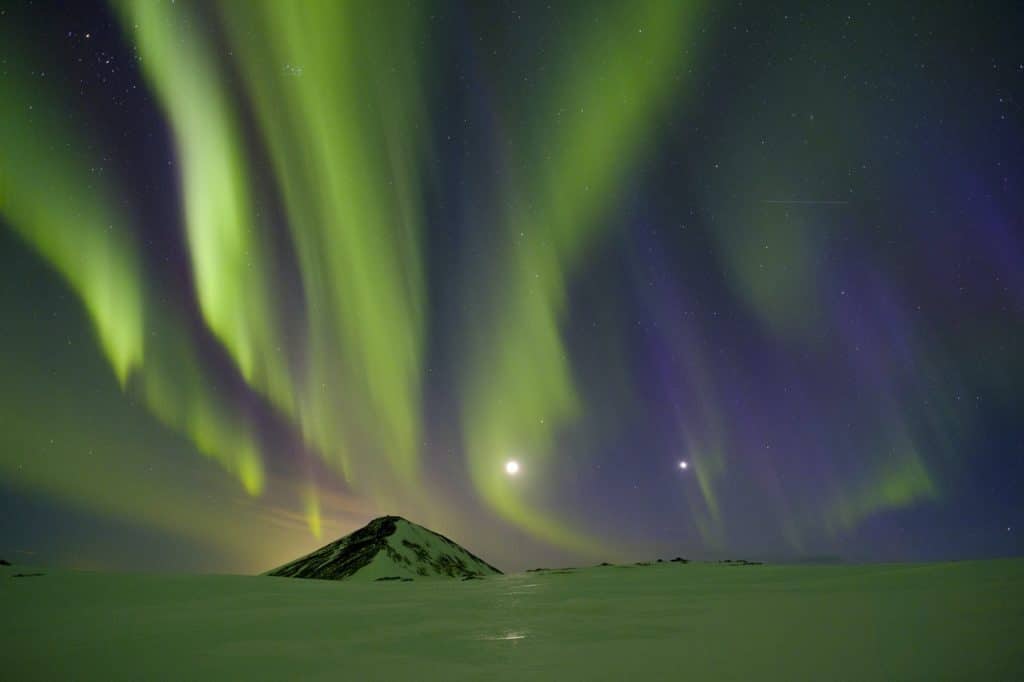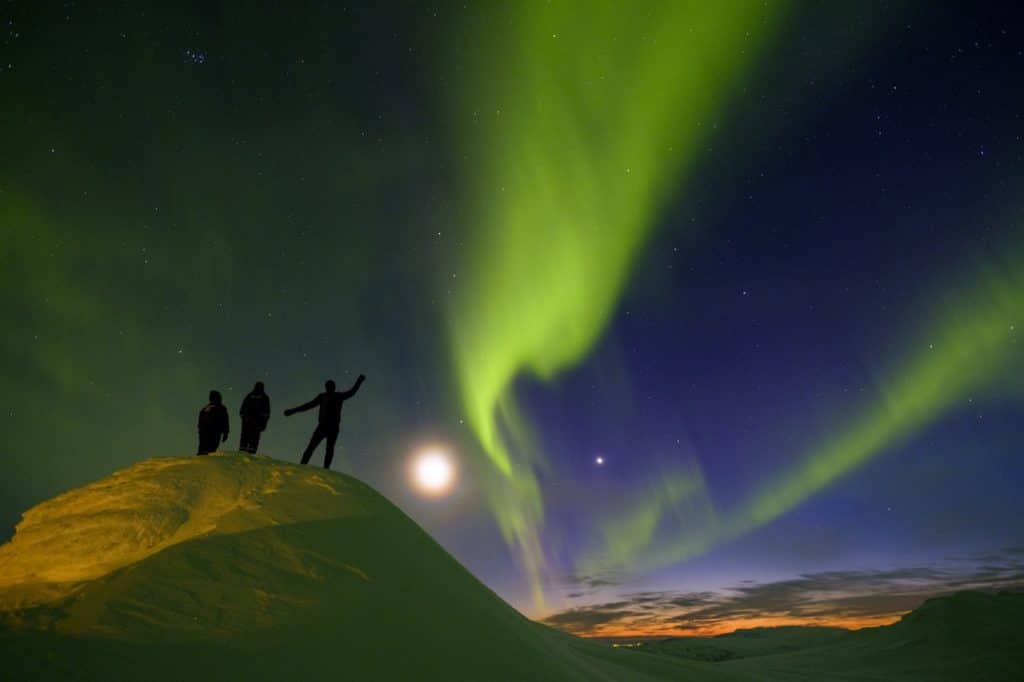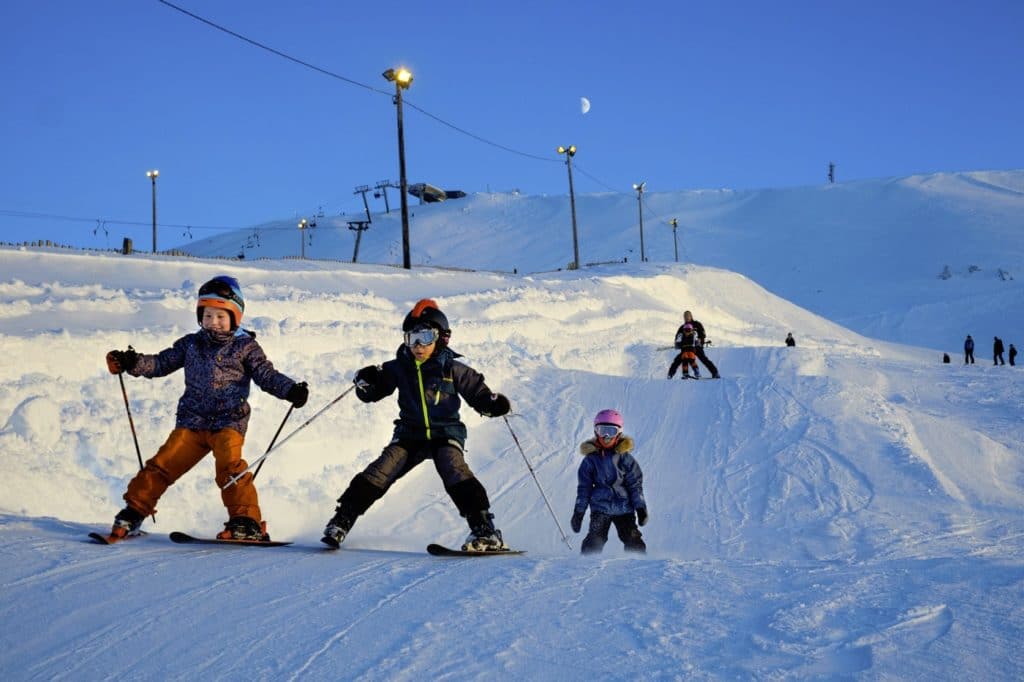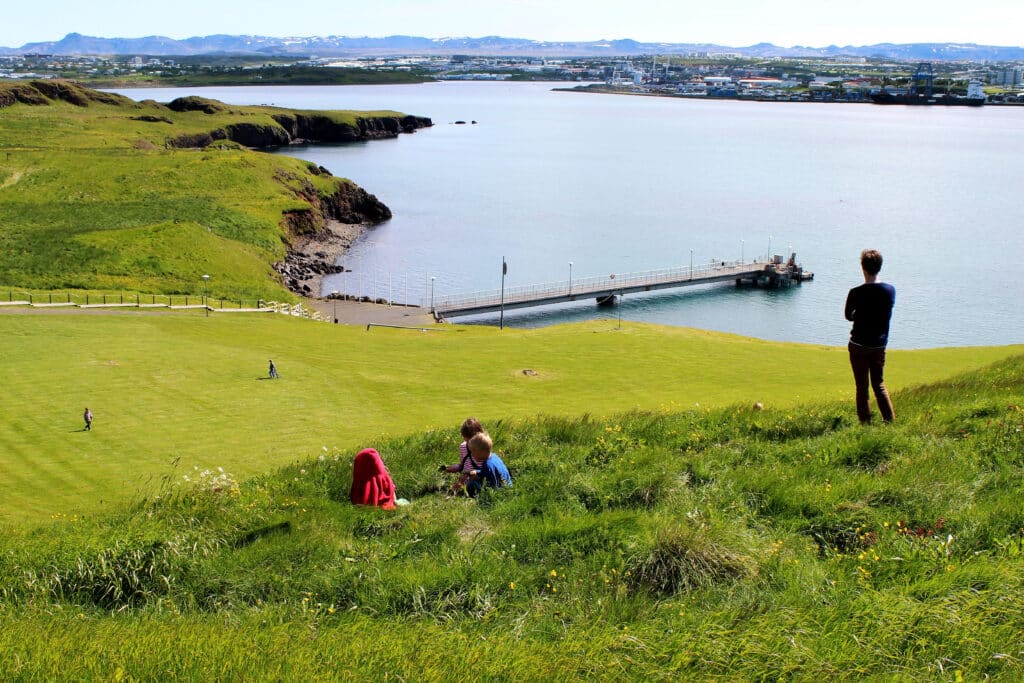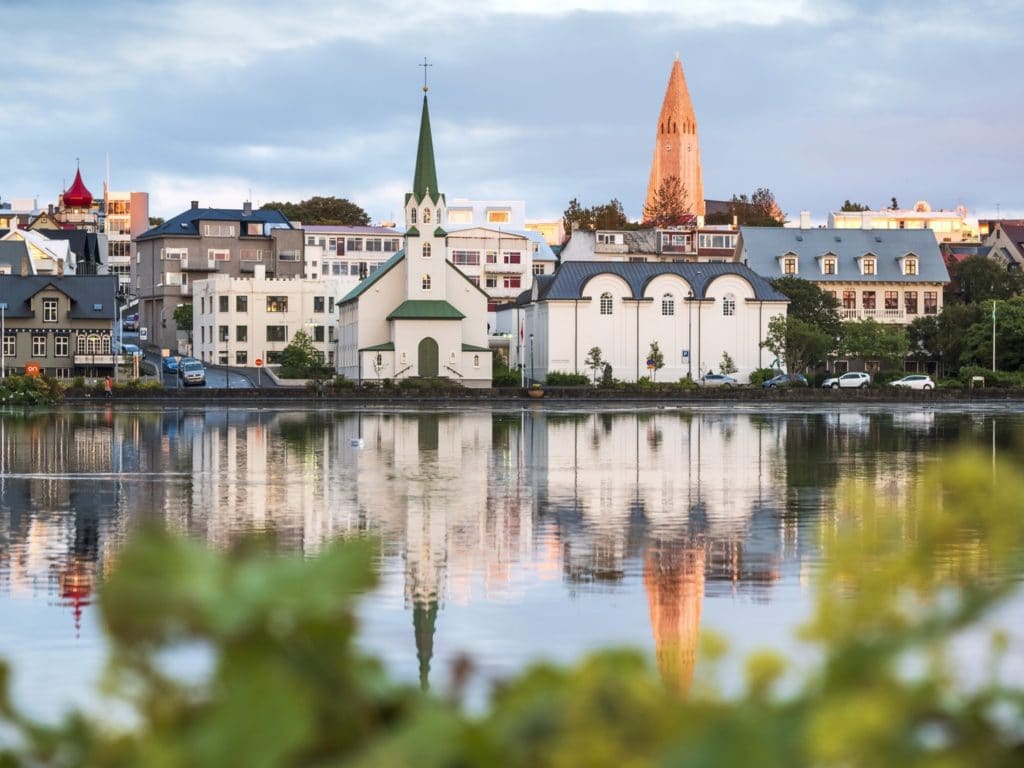Laugardalur valley is a neighbourhood in Reykjavík that lies east of the city centre. Filled with parks, sport centres, and other recreational opportunities, Laugardalur is the perfect place to spend a sunny day.
History
The name of the valley roughly translates to hot spring valley, and it takes its name from the hot springs where the women of Reykjavík used to wash laundry. Laugavegur, Reykjavík’s main shopping street, shares its name with the valley, since it was first built as a way for washerwomen to get to the hot springs. Later, the hot water was used to make a swimming pool and Laugardalur soon became a centre for sports and outdoor activities.
Reykjavík’s largest thermal pool
Today, Laugardalur still has the largest swimming pool in Reykjavík, Laugardalslaug. It’s got an indoor pool, an outdoor pool, hot tubs of varying temperatures, a wading pool, a sunbathing area, a steam bath, and a waterslide – it’s basically a water paradise. Having a chat with the locals in the hot tub is essential, but there are also plenty of other activities in Laugardalur.
Parks and gardens
Laugardalur also boasts a beautiful botanical garden featuring an impressive selection of arctic flowers and plants. Beneath the branches of a leafy grove in the gardens, you’ll find the lovely Flóran, a café and bistro. Right by the botanical garden is The Family Park & Zoo. The zoo includes most Icelandic animals, both wild and domesticated, from foxes, reindeer, and seals to cattle, horses, and sheep. In summer, the family park offers rides and play equipment for children of all ages as well.

The Reykjavík Art Museum – Ásmundur’s studio
At the edge of Laugardalur valley, not far from Laugardalur’s sports arena, is a strangely shaped, domed white building that’s well worth a visit. This is Ásmundarsafn, the former studio of Ásmundur Sveinsson (1893-1982), which has now been converted into a museum. Ásmundur was a pioneer of Icelandic sculpture and you can see his sculptures in many different locations all around the city, such as in front of the main building of the University of Iceland and on the corner of Lækjargata and Bankastræti in the city centre.
The Laugardalur stadium
Finally, Reykjavík’s main sports stadium, Laugardalsvöllur, is also located in Laugardalur valley. Close to the stadium is the Laugardalshöll arena, a multipurpose indoor venue built in 1965. In addition to large pop and rock concerts, trade shows, exhibitions, and the 1995 World Championship of Handball, Laugardalshöll hosted the famous 1972 World Chess Championships, where American Bobby Fischer defeated Russian Boris Spassky.


